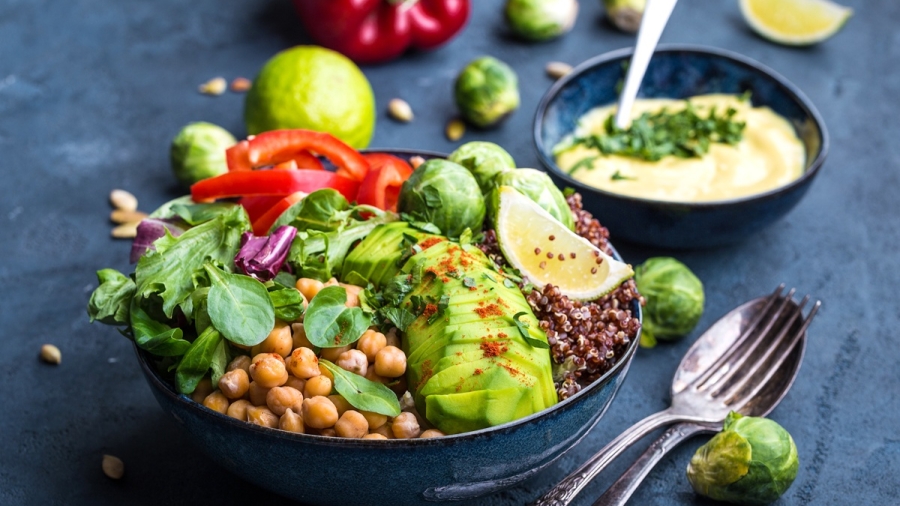When people think of iron, they often picture steak or liver. But did you know that a well-planned vegan diet can provide all the iron you need—without harming animals or the planet? Not only is plant-based iron sufficient, it also comes with additional benefits: fiber, antioxidants, and zero cholesterol.
This guide shares the top 10 iron-rich plant foods, how to absorb iron better, and why vegan sources of iron are a healthier, more ethical alternative to animal-based options.
Why Choose Plant-Based Iron Over Animal-Based?
Iron comes in two forms:
-
Heme Iron – Found in animal flesh. Absorbed easily, but associated with health risks.
-
Non-Heme Iron – Found in plants. Slightly less absorbable, but safer and more wholesome.
Here’s why plant-based iron is the better choice:
-
Heme iron has been linked to higher risk of heart disease, type 2 diabetes, and certain cancers, according to studies published in The American Journal of Clinical Nutrition and JAMA.
-
Plant-based iron sources are naturally low in saturated fat and cholesterol—or completely free of them.
-
Plant foods provide fiber, antioxidants, and other beneficial compounds, unlike meat.
-
Choosing plant-based foods supports ethical eating and environmental sustainability.
Top 10 Vegan Sources of Iron
Here are iron-rich foods that are easy to find, affordable, and entirely plant-based:
1. Lentils
-
Iron: ~6.6 mg per cooked cup
-
Also rich in protein and fiber
-
Perfect for soups, stews, and salads
2. Tofu
-
Iron: ~6.6 mg per ½ cup
-
Made from soybeans, packed with protein
-
Ideal for stir-fries, curries, and scrambles
3. Spinach (Cooked)
-
Iron: ~6.4 mg per cooked cup
-
Excellent source of vitamins A and K
-
More absorbable when cooked and paired with vitamin C
4. Chickpeas
-
Iron: ~4.7 mg per cooked cup
-
High in protein and fiber
-
Great in hummus, curries, and wraps
5. Pumpkin Seeds
-
Iron: ~2.5 mg per ounce
-
Great snack or topping for salads and oatmeal
-
Also rich in zinc and magnesium
6. Quinoa
-
Iron: ~2.8 mg per cooked cup
-
A complete protein
-
Excellent base for grain bowls and side dishes
7. Tempeh
-
Iron: ~4.5 mg per ½ cup
-
Fermented soy with a nutty flavor
-
Helps with gut health and protein intake
8. Oats
-
Iron: ~3.4 mg per cooked cup
-
Ideal breakfast with fruit and nuts
-
Many brands are fortified with extra nutrients
9. Blackstrap Molasses
-
Iron: ~3.5 mg per tablespoon
-
Also provides calcium and potassium
-
Use in smoothies, baking, or oatmeal
10. Swiss Chard (Cooked)
-
Iron: ~4 mg per cooked cup
-
Loaded with vitamins and phytonutrients
-
A great side dish with beans or grains
How to Improve Iron Absorption on a Vegan Diet
Since non-heme iron is less readily absorbed than heme iron, follow these science-backed tips to enhance absorption:
1. Pair with Vitamin C-Rich Foods
Vitamin C can increase iron absorption by 2 to 3 times.
Examples:
-
Add bell peppers or tomatoes to lentil dishes
-
Combine spinach with lemon juice
-
Eat citrus fruits with meals
2. Avoid Tea & Coffee Around Meals
Tannins in tea and polyphenols in coffee reduce iron absorption.
Wait at least 1 hour before or after meals to drink them.
3. Minimize Calcium at High-Iron Meals
Calcium competes with iron for absorption. Don’t consume calcium-rich foods or supplements with your iron-heavy meals.
4. Use Traditional Cooking Techniques
Soaking, sprouting, and fermenting legumes and grains reduce phytic acid, a natural compound that inhibits mineral absorption.
5. Cook in Cast Iron Pans
Studies show that cooking in cast iron cookware can increase iron content of food, especially acidic dishes like tomato sauces.
Daily Iron Needs and Vegan Considerations
According to the National Institutes of Health (NIH):
-
Adult men: 8 mg/day
-
Adult women (19–50): 18 mg/day
-
Vegans and vegetarians: Multiply by 1.8, due to lower absorption
(e.g., women may need around 32 mg/day)
Most vegans can meet these needs easily through diet alone, without the harmful effects of animal products.
Conclusion: Choose Iron That Aligns With Your Values
Plant-based sources of iron not only meet your nutritional needs, but also align with a more compassionate, health-conscious, and sustainable lifestyle. Unlike animal-derived iron, which comes with baggage—ethical, environmental, and medical—vegan iron is cleaner, safer, and kinder.
If you’re choosing a cruelty-free diet, iron deficiency should never be a concern—with knowledge and planning, you’ll thrive.
Eat plants. Save lives. Nourish your body.


